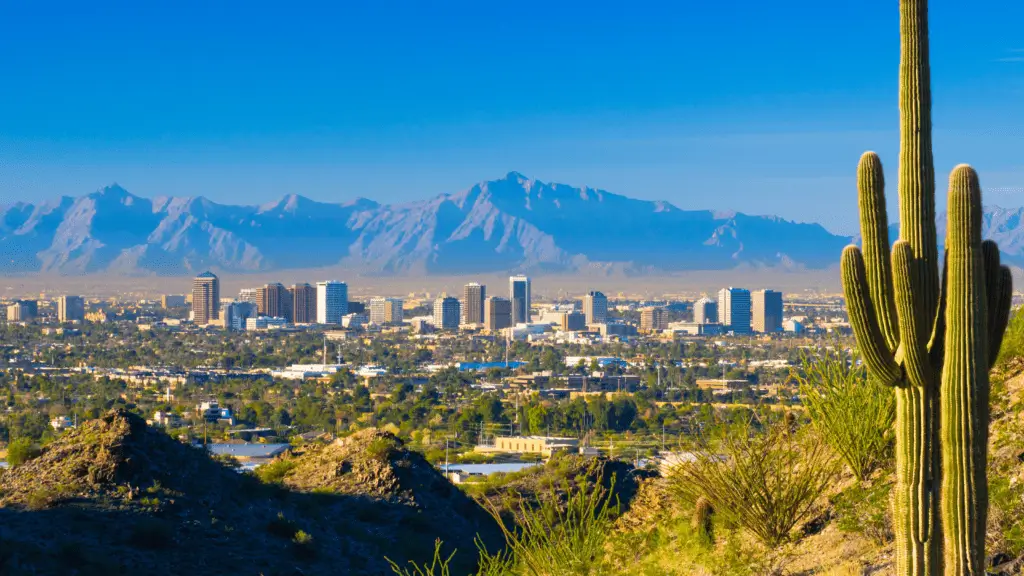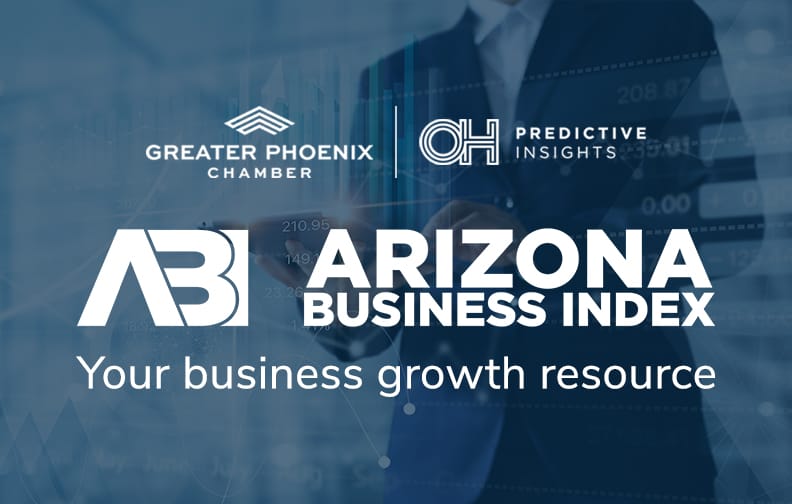Arizona Business Index gives snapshot of business marketplace
By Terrance Thornton | Digital Free Press
For all intents and purposes it appears the ‘Great Resignation’ has reached its peak meanwhile Arizona economists say inflation and the looming increase of interest rates is taking its toll on consumers.
That is according to the Q2 Arizona Business Index, which is developed by OH Predictive Insights, and seeks to give an economic barometer of the current state of things here in the Phoenix metropolitan area.
“The news is as we expected with inflation continuing an upward trend in Arizona,” said Todd Sanders, president and CEO of the Greater Phoenix Chamber. “We are pleased to see job satisfaction and job security holding steady. One could argue that perhaps the ‘Great Resignation’ is over.”
But as inflation grows and the Federal Reserve’s intention clear, the Phoenix metropolitan housing market — both the traditional marketplace along with the rare air of luxury properties — is very well positioned to weather the storm, two local real estate experts say.
Provided within the latest Arizona Business Index is the Phoenix housing index, which based on a point system, suggests that nearly two-thirds of consumers agree it is a difficult time to purchase a new home. That number, the report shows, eclipsed 100 for the first time in seven months.
“I think what has happened is that a lot of folks have experienced that rapid rate of inflation,” Mr. Sanders said of consumer confidence.
“We are going to see some interest rate hikes, but local businesses are still looking for talent out there,” he said. “There really are two parts to the economy. We are sort of bending the laws of economics and we will see if they bend or break.”
Mr. Sanders explains the Arizona economy is a much more diversified machine today than during the last economic downturn.
“We have such a different circumstance today, how the economy works compared to back in 2008,” he pointed out. “The global nature of the economy is going to have an effect but we need to understand that this is a moment in time.”
Mr. Sanders explains numbers show job satisfaction and security is at an all time high of recent memory.
“Consumer spending is being impacted and the bottom line is it will cost more to borrow money, which will have some real results in the market,” he said. “I think what I understand from talking with our economists is we are headed toward a recession and when we do get there, however, it will likely be relatively shallow.”
Economic optimism hit an all-time low in June with 81% of consumers expecting interest rates to rise, according to Q2 Arizona Business Index report.
“When I think about what happened in ‘08, and part of the challenges then was we did not have a diversified economy,” he said noting the growth of the manufacturing, tech and healthcare sector growth here in the Phoenix metropolitan area.
A surprise within the numbers? Mike Noble, OHPI’s chief of research, points out job satisfaction is strong.
“Arizona employers deserve a shout-out because Arizonans are feeling incredibly secure in their jobs and job satisfaction remains high,” he said. “What is really interesting is the generational differences in purchase intent between the young and old – with the younger generations more bullish to spend compared to older generations.”

(File Photos/DigitalFreePress.com)
A practical snapshot of the Scottsdale real estate market
Scottsdale Realtor Gary Shapiro agrees as interest rates rise so do consumer eyebrows.
“Consumer responses always have a radioactive half-life,” he told the Arizona Digital Free Press. “When interest rates first started rising, buyers were unhappy and uncertain. As time goes on, they get used to the new realities and start to accept things. It’s less of a “hot potato.”
Today and in the foreseeable future, Mr. Shapiro contends, reasonable returns on real estate investment will continue.
“The 50-year average interest rate for 30-year fixed rate mortgages is in the 7% to 8% range,” he said of what the historic numbers look like. “Real estate has always enjoyed a long-term sustainable appreciation rate in the single digits. Twenty to thirty percent appreciation was great cocktail party bragging, but unrealistic.”
While inventory remains low, and challenges do exist, Mr. Shapiro quips, “five to 10 years from now, our friends and neighbors will all be saying that they wished they would have bought more real estate in Scottsdale.”
Some of those challenges, however, include some potential buyers unable to qualify for home loans.
“Unfortunately, some buyers may not be able to qualify for loans at today’s interest rates. But they should still try to buy something so they have a stake in the game. Ownership is still a strategic goal,” he said. “Buyers who are sitting on the sidelines waiting for things to improve are missing the point. As it has been said, marry your house and date your mortgage. Seize the opportunity to buy and own a personal residence. You can always refinance at a later date.”
No matter what the designed economic shifts may equate to, Mr. Shapiro believes the industry has learned difficult lessons regarding an economic downturn spurred by poor financial eligibility requirements.
“Local and state business and political leaders have made strategic progress to create opportunities to insulate us from past mistakes,” he said.
“Sadly, the Federal Reserve seems to be one institution where their actions often have unintended consequences. Real estate professionals, lenders and appraisers learned from past cycles. Previous buyers were undercapitalized, and inexperienced, which led them down a path to disaster. Today, lending guidelines are reasonable and realistic. The equity position of buyers is stronger.”

A resilient luxury real estate market
Robert Joffe of The Joffe Group, who is part of the Launch Real Estate umbrella, says he has been pleasantly surprised by what is happening in the luxury real estate markets of Arcadia, Phoenix and the Town of Paradise Valley.
“I operate primarily in the Biltmore and Arcadia areas of Phoenix along with the Town of Paradise Valley and I have been very pleasantly surprised — the market has been very resilient so for,” he told Free Press Paradise Valley.
Mr. Joffe reports in the last 30 days, nine million-dollar homes have changed hands along with one property being brokered at a staggering $11.5 million.
“The sentiment is negative of course,” he admitted, but pointed out something very indicative of the luxury housing market. “The interest rates are secondary to the stock market. I am still seeing a lot of cash buyers. We certainly are not in the euphoria of the market of January through March as things have slowed down but the market is healthy and much more resilient than people think.”
No matter the intricacies of the luxury market or the general housing marketplaces of Phoenix — the Grand Canyon State continues to be a lure for both commercial and personal relocation.
“Arizona, people want to move here and they want to be here,” Mr. Joffe said of the sunshine here in the Valley of the Sun. “I do think the economy is diverse and we still are an area that is very beneficial to real estate. Businesses want to be here.”
Mr. Joffe who has been selling real estate for more than 30 years points out a healthy market is one that is liquid.
“The amount of cash in the market is more than I have ever seen,” he said. “People hare more equity — there is cash in the market. We are dealing with a much healthier marketplace then it ever was before.”


